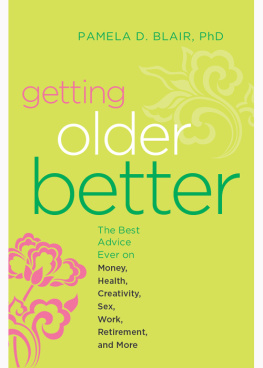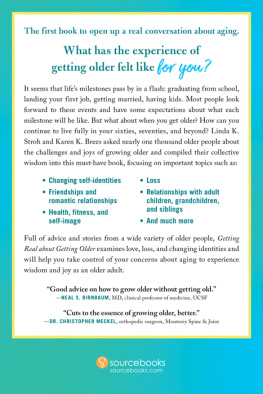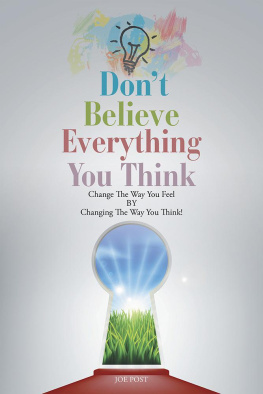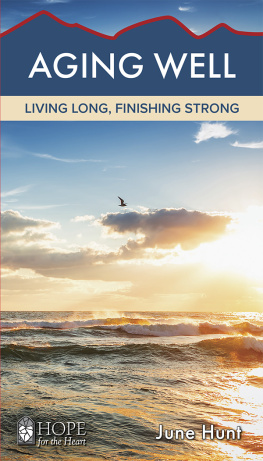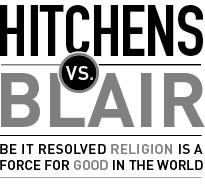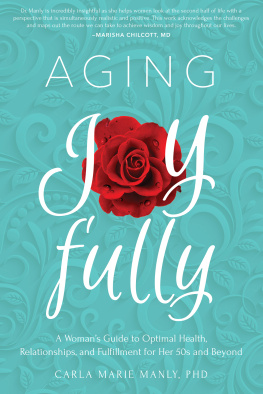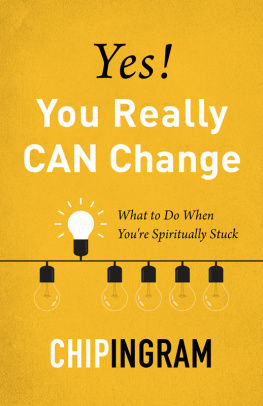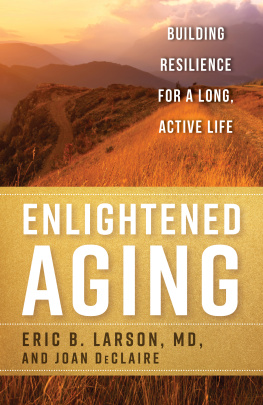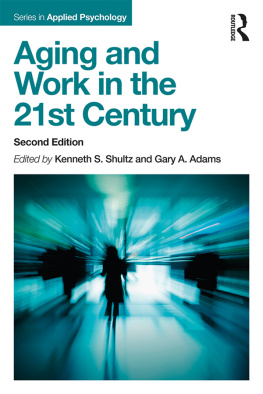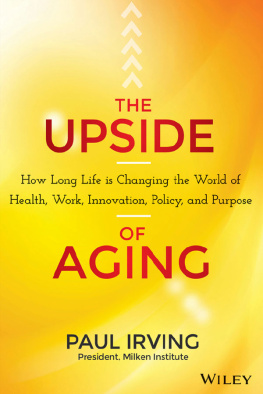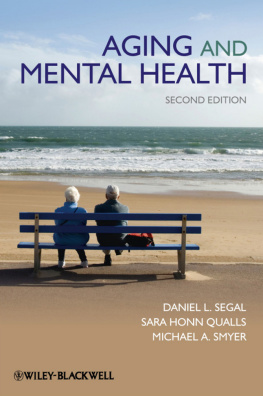
Copyright 2005, 2014 by Pamela D. Blair.
All rights reserved. No part of this publication may be reproduced or transmitted in any form or by any means, electronic or mechanical, including photocopying, recording, or by any information storage and retrieval system, without permission in writing from Hampton Roads Publishing, Inc. Reviewers may quote brief passages. Portions of this book were previously published in 2005 as The Next Fifty Years by Hampton Roads Publishing Company, ISBN: 978-1-57174-439-5.
Cover design: www.levanfisherdesign.com/Barbara Fisher
Cover art shutterstock/paul_june
Interior designed by Deborah Dutton
Hampton Roads Publishing Company, Inc.
Charlottesville, VA 22906
Distributed by Red Wheel/Weiser, LLC
www.redwheelweiser.com
Sign up for our newsletter and special offers by going to www.redwheelweiser.com/newsletter/.
ISBN: 978-1-57174-703-7
Library of Congress Cataloging-in-Publication Data available upon request.
Printed on acid-free paper in the United States of America.
EBM
10 9 8 7 6 5 4 3 2 1
www.redwheelweiser.com
www.redwheelweiser.com/newsletter
This book is dedicated to my Swedish grandmother, Agda Matilda Janssen Smith, and to my four sisters, Marilyn, Susie, Debbie, and Alison.
contents
introduction
I have always longed to be old, and that is because all my life I have had such great exemplars of old age, such marvelous models to contemplate.
MAY SARTON
I remember my Swedish grandmother's strength and steadfastness. A pioneer in a new world, she had to be tough. As a nineteen-year-old immigrant, she came to the United States in the early 1900s on her own. She married and later became a widow with a five-year-old daughter to care for. As I faced some of my own life challenges (two divorces, a husband who died, raising children on my own), I drew strength from her story. As she aged, I watched her seek ways to grow intellectually (she loved US history, listening to books on tape when she could no longer see well enough to read) and socially (in her seventies, she had a boyfriend who was in his sixties!). She walked everywhere and dressed with class. She enjoyed politics, creative pursuits, saving money to buy quality items, teaching, and playing with her grandchildren. She died at 102. I'm grateful to her for giving me a solid, healthy view of aging.
My sister Marilyn has also given me glimpses into what I might expect as I age. As mentor and pathfinder for me, she's been like an efficient snowplow, clearing and sanding the road ahead of me for safe travel. As grateful as I am to her, the five-year glimpse ahead that she offered hasn't felt like quite enough. I've wanted to know more. I've wanted to know more about what was waiting for me in the years ahead so I could plan, aspire to greater things, feel some measure of control, and be part of an evolving community of women. May Sarton called them great exemplars of old age and had them all her life. I realized after entering the second half of my life that other than Grandma and Marilyn, I lacked marvelous models to contemplate.
This book was born out of a search for more role models. I wondered, What will old age and its unknown future with its specter of diminishments of all kinds demand of me? Where is the dignity to be found in it? What can I expect at various stages? How will I approach deathmy own and that of those I love? What passions do I have time to pursue?
Women over fifty are the new pioneers. Author Colette Dowling says, Because no previous generation of midlife women had the luxury of seeing decades of productive time roll out before them, we who came of age with the women's movement are in the position, once again, of having to do it for the first time. We are living longer and better lives than ever before. As there is no turning back the clock, the goal is to live these golden years the best we can, maintaining our quality of life and independence for as long as possible.
Medical advances coupled with technological research are going to extend our life expectancies so much that some of us could easily reach 120. We might become the first generation of women to live sixty or so years beyond menopause! The length of time that humans spend in adulthood has more than doubled since the early part of the 20th century, making it possible for today's midlife women to have fifty more years with their mates (or without them), of watching their children grow old, and of facing career choices, leisure time, physical challenges, and learning opportunitiesand fifty more years of trying to fund it all.
In the next fifty years, as science, medicine, and bioengineering extend the span of human life, one-hundredth birthdays will lose their mystique. In 1950, there were only 2,300 people older than one hundred. By 2050, there could be somewhere in the neighborhood of 600,000 centenarians in the United States. By mid-century, old people will outnumber young people for the first time in history. The 20th century has given us the gift of longevity. In the past hundred years, life expectancy has increased by three decades, a phenomenon that is reshaping our families, attitudes, work lives, and institutions.
We live in a paradoxical time. In the past, respect for the wisdom of the elders was central to human societies. The elders served as keepers of cultural knowledge. But today, in technological countries such as ours, respect has faded into bare tolerance as we expect older people to act, look, and talk young. This view is changing slowly, and aging, as we have known it, will no longer only be seen as a time of disability, mental decline, and diminished energy.
We will be living longermuch, much longerthan we ever dreamed possible. This new era of aging will create an altogether new set of challenges. Our families and social institutions will be boggled by a social revolution. About every seven seconds, a baby boomer turns sixty. Retirement is becoming pass, just another word for career change, eighty-year-olds are dating and marrying, and ninety-year-olds are getting college degrees. Thanks to the miracles of medical science, we are experiencing an extension of the human life span, and people age one hundred or older are surprisingly healthy. We are beginning to see more and more educated and healthy older people in our society.
Before the 19th century, most people didn't age muchthey died. Just a hundred years ago, few reached age sixty-five. Now there are about 35 million Americans who are sixty-five and older. By 2030, more than 70 million Americans will be over the age of sixty-five. The number of people over sixty-five has grown tenfold since 1900. And the fastest growing segment of our population is the eighty-five-and-over age group.
Aging continues to be redefined, and we need new words to describe it. In writing this book, I've struggled to find a single word for age fifty-plus women that isn't negative. Authorities on aging describe us as being young until we're forty, middle-aged between forty and sixty, and old from sixty to eighty. But those terms are simultaneously broad and limiting. We need better words that embody the spirit of the woman over fifty. Some suggest using the word crone, but many women bristle at that.
I find the term wise woman appealing. Helen Hayes, first lady of the American theater, who died in 1993 at the age of ninety-three, thought we should be called maturians. For her, the word implied there was still a bit of fight in us. Marilyn, my sister, doesn't like the words old or older; I like the word
Next page
